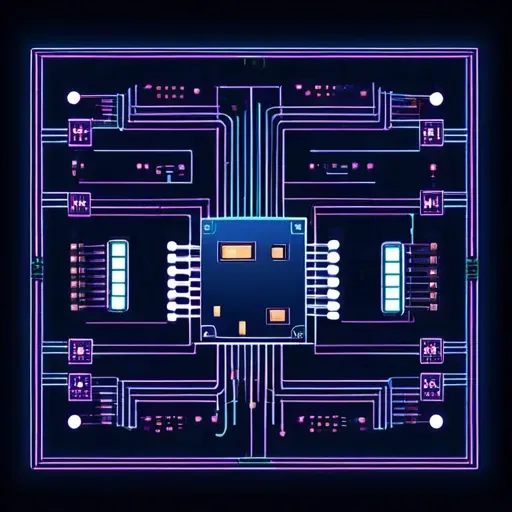
Advancements in Verification of Jolt zkVM Lookup Semantics
/ 4 min read
Quick take - The paper “Verifying Jolt zkVM Lookup Semantics” by Quang Dao and Justin Thaler discusses advancements in the verification processes of zero-knowledge virtual machines (zkVMs), particularly focusing on the Jolt zkVM built on the RISC-V instruction set, which enhances cybersecurity through formal verification and optimizations that improve efficiency and reduce vulnerabilities.
Fast Facts
- The paper “Verifying Jolt zkVM Lookup Semantics” by Quang Dao and Justin Thaler focuses on enhancing verification processes for zero-knowledge virtual machines (zkVMs), crucial for cybersecurity.
- Jolt zkVM, based on the RISC-V instruction set architecture, produces succinct proofs for validating bytecode program execution using an efficient lookup argument called Lasso.
- The authors detail a formal verification method for Lasso-style lookups, utilizing the ACL2 theorem proving system to ensure accuracy against the RV32I instruction set.
- Optimizations from the verification process include eliminating unnecessary lookups and significantly reducing subtable sizes, enhancing efficiency without compromising correctness.
- Verified zkVMs like Jolt improve cybersecurity by enabling correct program execution demonstrations while protecting sensitive data, crucial for privacy-centric applications and decentralized systems.
Advancements in Zero-Knowledge Virtual Machines
A recent paper titled “Verifying Jolt zkVM Lookup Semantics” presents significant advancements in zero-knowledge virtual machines (zkVMs). The paper is authored by Quang Dao from Carnegie Mellon University and Justin Thaler from Georgetown University, with contributions from a16z crypto research.
Enhancing Verification Processes
The research focuses on enhancing verification processes of zkVMs, which are crucial for cybersecurity in various applications. Jolt zkVM is built on the RISC-V instruction set architecture (ISA) and produces succinct proofs that validate the correct execution of bytecode programs. A key feature of Jolt is its use of Lasso, an efficient lookup argument designed for large structured tables. It verifies the execution of instructions by performing multiple lookups into smaller subtables, with results aggregated for verification.
The authors detail a method for formally verifying Lasso-style lookup arguments against the semantics of instruction set architectures. This process includes formalizing and verifying all 32-bit instructions of the RISC-V base instruction set (RV32I) using the ACL2 theorem proving system. The formal ACL2 model has been validated against the Rust implementation of Jolt, ensuring that the model accurately reflects the behavior of the actual implementation.
Optimizations and Future Plans
The formal verification process has led to optimizations within the Jolt codebase, enhancing efficiency without sacrificing correctness or soundness. Notable optimizations include the elimination of unnecessary lookups for four instructions and a reduction in the sizes of three subtables by 87.5%. The verification model is designed for extensibility, allowing for the integration of additional instruction sets like RV64I and other Jolt front-end components in future developments.
Jolt’s approach to zkVMs distinguishes itself from other projects by emphasizing decomposable lookups over arithmetic constraints. Future plans for Jolt include expanding formal verification to incorporate more front-end components, such as R1CS and memory-checking mechanisms.
Implications for Cybersecurity
The implications of verified zkVMs like Jolt are profound for cybersecurity. They enable users to demonstrate the correct execution of programs without revealing sensitive data, an essential feature for privacy-centric applications. Formal verification enhances the integrity of zkVMs, ensuring accurate program execution and validation, making it more challenging for attackers to exploit potential vulnerabilities.
This is particularly important given that zkVMs rely on complex cryptographic proofs (SNARKs). Verification helps mitigate flaws that could result in false proofs or circumventing constraints. Moreover, verified zkVMs significantly reduce the risk of attacks like proof forgery, as unverified code sections might be manipulated for fraudulent computations. By ensuring correct execution, formally verified zkVMs lower the likelihood of attackers exploiting bugs in the execution logic, which is critical for secure processing in cloud and blockchain environments.
In decentralized systems, where traditional security measures may not be applicable, verified zkVMs provide strong assurances and reinforce blockchain security. The formal verification efforts within Jolt have also resulted in optimizations that minimize computational overhead, a vital factor for scalability in cryptographic systems. As zero-knowledge proofs become increasingly popular, verified zkVMs play a crucial role in minimizing potential vulnerabilities and enhancing security across a range of applications, including finance, healthcare, and personal privacy.
Original Source: Read the Full Article Here


